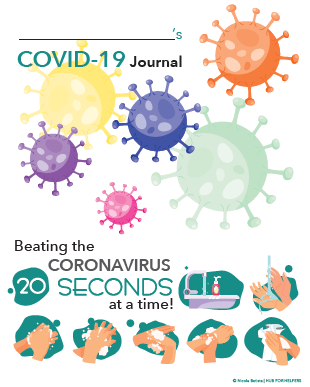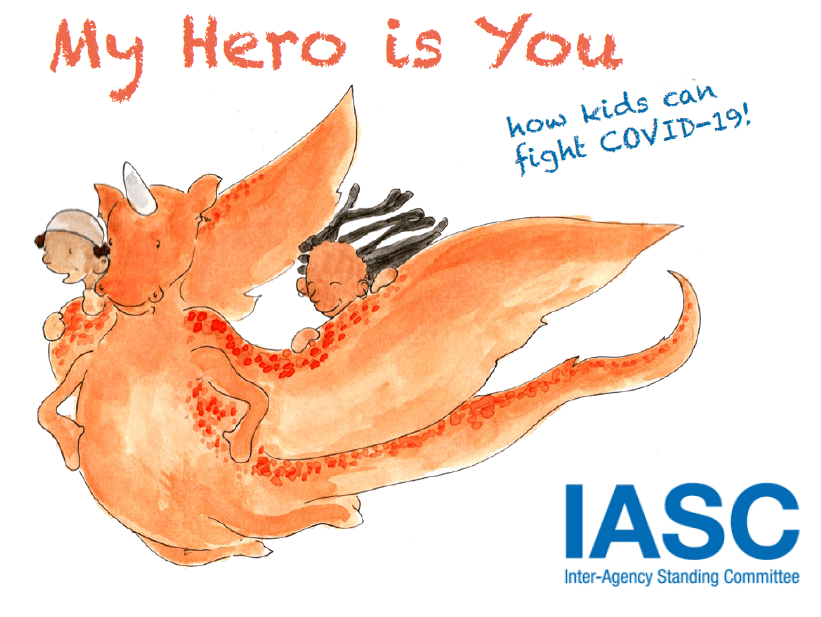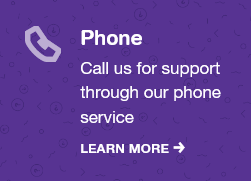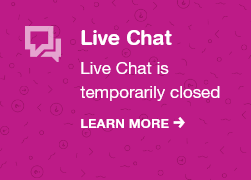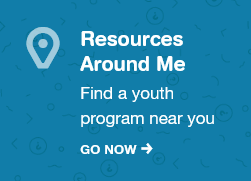Children & Youth
There is full range of mental health services for children and adolescents across the region including community services, crisis services, and some specialty services in different areas.
Should I call North or South?
If you require a more urgent response, please call:
NORTH – 1-866-332-3030 | SOUTH – 1-888-379-7699 or 204-725-4411
- Community Mental Health
- Crisis Stabilization Unit
- Early Intervention Services
- Treatment Centre
- Resources
How do I start?
Child & Adolescent Community Mental Health accepts referrals from many different sources including:
- Parents
- Caregivers
- Doctors
- Counsellors
- School Staff
- Child Welfare Agencies
- Or yourself
Clients under the age of 16 must have the consent of their parent or guardian to access services.
Clients age 16 or older are able to provide their own consent.
Who can access Child & Youth Community Mental Health?
Children and adolescents under the age of 18 who are experiencing social or emotional concerns, or symptoms of mental illness.
Signs to look for that may tell you that you need help:
- You are thinking about hurting yourself or someone else
- You are having trouble coping and it is affecting you school work, family life, relationships, etc.
- You have had something traumatic happen and you are having trouble coping
- You feel that you are getting worse instead of better despite medication
- You think you have anxiety, depression, or are hearing / seeing things that are not there.
What do we offer?
Clients are seen on an appointment basis. Scheduling is arranged between therapists and clients.
Walk-in service is also provided from 8:30 – 4:30 in Brandon.
Services include:
- Assessment
- Individual therapy
- Family therapy
- Mental health education
- Parenting groups
- Positive Parenting Program
- Active Parenting of Teens
- Public awareness
- Consultation
- Other services based on needs.
What happens next?
The Access Worker will talk with you on the phone or in-person to help decide the services best suited to meet your needs. Anyone is welcome to call the Access Worker to start the process. The worker starts by asking some questions. Then they will go over the reason that you want mental health services.
It is important to also go over risks, such as thoughts of suicide, drug and alcohol use, and aggressive behaviors. The questions asked, help to find the best services and decide how quickly they are needed.
People having symptoms affecting their mental health will be linked to a Community Mental Health Worker for talk therapy. You can expect the Access Worker to help you problem solve and help you find the best services for your needs. The Worker will do their best to help the person access services through other agencies. Examples of other agencies include:
- Addictions Foundation of Manitoba
- Child & Family Services
- Children’s disABILITY Services
- School Counsellors and Social Workers
- Private Counselling
- Clergy
Contact Information
North
Dauphin: 204-638-2118
Roblin: 204-937-2151
Ste. Rose du Lac: 204-447-4080
Swan River: 204-734-6601
South
Brandon & Area: 1-866-403-5459
Carberry: 204-834-8841
Minnedosa / Neepawa: 204-476-7836
Rivers, Hamiota, Erickson: 204-328-6211
Russell, Shoal Lake, Birtle: 204-842-3399
Souris, Deloraine, Killarney, Boissevaine: 204-483-6224
Virden: 204-748-4346
The Crisis Stabilization Unit (CSU), is a 24-hour 10-bed unit that accommodates youth (10-17 years old) experiencing a wide range of crises.
Treatment at the CSU focuses on assisting clients and families to understand and resolve the specific crisis, while anticipating future problems and contributing factors.
CALL: 204-578-2700 or 1-866-403-5459 for questions and access.
How is someone admitted?
You can contact and Access Worker from 0830 – 4:30 to discuss an admission, or you will be directly connected to the unit to speak with the nurse after hours. If you are in distress and would like to talk to someone, but don’t know if you need admitted, call anytime to talk with qualified professional staff who will assist you with your problem.
Referrals for admission can be made by:
- Parents
- Caregivers
- Doctors
- Counsellors
- School staff
- Child welfare agencies
- Yourself
Clients under the age of 16 must have the consent of their parent or guardian to access services.
Clients age 16 or older are able to provide their own consent for admission.
What Treatment and Services are Offered?
Services provided may include:
- Individual therapy
- Group therapy
- Psychological assessments
- Community transitioning
- Education and academic assessments
- Psychiatric assessments
- Recreational therapy
The CSU team consists of several different professionals including:
- Psychiatrists
- Social Worker
- Psychiatric Nurses
- Psychologists
- Nursing Aids
- Teachers
- Community Partners
What Do I Need to Bring?
- Clothes and personal hygiene items (enough for three days, laundry available). Please do not bring clothing with strings or ties, is revealing, or has negative sayings.
- Do Not Bring items such as: mirrors, flammable liquids, anything with long cords or glass, cell phones, cameras, etc. Belongings will be checked for these items on admission
- You can have no more than ten dollars with you. You may have the money locked up.
Visiting Hours & Contact Information
Family Only (parents must accompany children under 14 years old)
Weekdays
3:30 pm – 4:00 pm
5:30 pm – 7:30 pm
Weekends
12:00 pm – 7:30 pm
Adolescent Phone Line: 204-726-9903
The Early Intervention Service (EIS) is an initiative of the Brandon Regional Health Authority, developed to identify, support and treat individuals experiencing psychosis for the first time. It is modeled from, and similar to, other “first break” programs around the world utilizing evidenced-based, best practice guidelines.
EIS will work with people between the ages of 15 to 30 who have experienced psychosis for the first time.
How do I Start?
Individuals between the ages of 15-30 can be referred to EIS. Referrals can be made directly to the intake workers attached with either adult or child/adolescent mental health services (depending on the age of the client). If it appears that EIS should be consulted, an EIS clinician will be contacted and screening will be initiated within 1-2 weeks. A seamless and rapid access to service is a guiding principle of EIS.
Early Intervention Services accept referrals from many different sources including:
- Parents
- Caregivers
- Doctors
- Counsellors
- School Staff
- Child Welfare Agencies
- Or yourself
Who can access EIS?
EIS will work with people between the ages of 15 to 30 who have experienced psychosis for the first time.
What is Psychosis?
The word “psychosis” is used to describe conditions that affect the mind, in which there has been some loss of contact with reality.
Psychosis affects an individual’s thoughts, feelings, and behaviours. The experience of psychosis varies greatly from person to person and two individuals experiencing psychosis may have very different symptoms.
Early symptoms may include:
- Reduced concentration & attention
- Reduced drive and motivation
- Lack of energy
- Depressed mood & anxiety
- Sleep disturbance, social withdrawal
- Suspiciousness
- Deterioration in role functioning
- Irritability
The acute phase may also include:
- Hallucinations and/or delusions
- Behavioural disorganization
What Do We Offer?
EIS staff consists of two full time EIS clinicians, and two part-time activity instructors. Psychiatric and psychological consultations are available as needed.
Treating a serious mental illness can involve:
- Medication
- Individual counselling
- Family support and counselling
- Practical support
- Involvement in a recovery program which focuses on helping people get their life back on track.
The focus of treatment is to control symptoms, assist the person to make sense of and overcome the trauma of their illness, and prevent relapse through decreasing risk factors such as stress, substance abuse, family conflict and stigma. Along with this comes the ongoing promotion of protective factors such as:
- Secure accommodation and income
- Engagement in work or study
- Strong networks and family support
- Adherence to medication
What happens next?
The Access Worker will talk with you on the phone or in-person to help decide the services best suited to meet your needs. Anyone is welcome to call the Access Worker to start the process. The worker starts by asking some questions. Then they will go over the reason that you want mental health services.
It is important to also go over risks, such as thoughts of suicide, drug and alcohol use, and aggressive behaviors.
The questions asked, help to find the best services and decide how quickly they are needed.
Contact Information
- Under the age of 18: 204-578-2700 or 1-866-403-5459 (toll free)
- Ages 18-30: 204-578-2400
If you have any questions regarding EIS, please feel free to contact an EIS clinician directly at 204-578-2434 or 204-578-2436.
1240-10th Street, Brandon, MB R7A 7L6
204-578 2700 or 1-866-403-5459 (toll free) | 204-578-2850
8:30 am to 4:30 pm
Crisis Stabilization Unit Fax: 204-578-2851
What is the CATC?
The Child and Adolescent Treatment Centre (CATC) provides Mental Health services to children, adolescents and their families.
Services include: mental health assessments and treatment, crisis stabilization, individualized treatment plans, individual, group and family therapy, and mental health education/promotion.
Who Works at the CATC?
The staff includes Child/Adolescent Psychiatrists, Psychologists, Social Workers, Registered Psychiatric Nurses, Teachers, an Occupational Therapist and Psychiatric Nursing Assistants.
Who Can Receive Services?
- Day Program and Education services are available to residents Brandon and surrounding area.
- Community Mental Health is available across the region. For contact information click on Child & Youth Community Mental Health.
- The Crisis Stabilization Unit and Early Intervention Service provides treatment and consultation to entire region.
Consents: Clients 15 years of age and under must have the consent of parent or guardian to become involved with treatment at CATC. Clients 16 years of age and older, are able to provide consent independently. Referral Information: Referrals can be made to explore service options and suitability prior to obtaining consent.
For referrals or information, please contact: 204-578-2700 or 1-866-403-5459 (toll free).
Day Program
Treatment is provided through individual and group therapies, focusing on self-esteem, social skills, communication, anger management, life skills and leisure skill development. Families are part of the treatment process and parent education and intervention is provided. Program staff also work in cooperation with school personnel and other involved agencies to provide the most appropriate treatment for each individual.
Clients are transitioned to community school on completion of the program.
Education
CATC can provide for the educational needs of clients involved in the Crisis Stabilization Unit and Day Treatment Programs. This may include academic assessment, individualized education planning, transition to community schools and consultation.
Community Mental Health, Early Intervention Services and the Crisis Stabilization unit are also available at CATC.
Prairie Mountain Health provides a range of mental health services for children and youth experiencing emotional, behavioural and mental health problems, and their families.
All of our services continue to provide assessment and treatment primarily through virtual means at this time. Psychiatry assessment will continue to be provided virtually, and families will be contacted to make arrangements for their appointment.
The CSU continues to accept crisis calls through the 24 hours Crisis Line at 1-866-403-5459. Youth and/or families can call this line 24 hours a day regarding emotional, behavioural and mental health problems for their child, including concerns and questions regarding anxiety and worries associated with the COVID 19 pandemic.
Admissions to the CSU for youth requiring it may still occur in accordance with all public health and Shared Health safety protocols. We are also introducing Virtual Admissions for those who may require it, where the standard level of care at our CSU may be delivered via virtual means while the youth remains home with their family or caregivers. If you would like to inquire about any type of admission to the CSU call 1-866-403-5459, and someone will be able to assist you.
All of our services continue to accept new referrals for service, and intake workers and CMHWs continue to provide assessment, treatment and monitoring primarily via virtual means. If you would like more information, or to make a referral for any of our programs, contact us at 1-866-403-5459 to be connected to the most suitable service.
Many children will be experience mental distress associated with all of the changes and uncertainty in our province. We know that children with mental health problems or mental illness are likely to experience increased distress in times of change and uncertainty, which can worsen symptoms and difficulties.
You can find some resources and information below to help support these children day to day during this difficult time for families:
Maintain a Routine or Structure
- SLEEP – Support good sleep pattern by having a regular bedtime and wake up time
- SCHOOL & STRUCTURE – Manitoba is continuing to provide educational support during the remainder of this school year. It is important to access these supports ongoing to help provide structure to the day. Block off a scheduled time each day for school work, as well as play and other activities.
- NUTRITION – It is important for families to eat together as they are able. During this time, families may have increased opportunity to eat together, visit, and talk about their day. This is also a good opportunity to discuss and practice good nutrition habits for your children and family.
- TIME OUTSIDE AND EXERCISE – As the weather warms up, spend time outside getting regular exercise. Exercise, and spending time outside is excellent for everyone’s mental wellness. Children should get at least one hour of physical activity per day.
Connect with your Mental Health Supports
- If you have a mental health worker, they are still available for you to reach out to. Call to schedule a virtual appointment with them.
- Mental Health Services in the Prairie Mountain Health are still available. Please use the contact information listed at the end of this resource to connect and ask questions.
- Please review resources and activities categorized in the sections below.
Free Books for Kids!
Kids Help Phone 
We’re here for you. Call a counsellor – 1-800-668-6868.
Kids and COVID-19 – A questions & answer session
Other Resources
Anxiety & Depression
- AbilitiCBT – a digital therapy program for all Manitobans ages 16 and up experiencing low to mid symptoms of anxiety due to the pandemic. Click the link below for more details.AbilitiCBT – a digital therapy program for all Manitobans ages 16 and up experiencing low to mid symptoms of anxiety due to the pandemic.
- Anxiety Canada – Calm Breathing
- Behavioral Activation – Prevent Depression During COVID-19
- Coping During COVID-19 – Resources for Parents
- Mind Shift TM CBT (app available on Google Play and Apple App Store)
- Talking to Kids About COVID-19
Autism & ADHD
Coping with Mental Distress
- How Mindfulness Can Help During COVID-19
- The Working Mind – COVID-19 Self-care & Resilience Guide
- Wellness Together – Mental Health and Substance Use Support
COVID 19 Information


